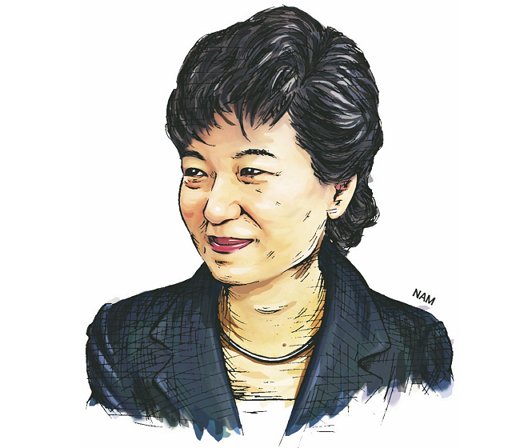President Park Geun-hye’s economic policies to develop a creative economy have not borne fruit over the past two years, pundits said.
The country still relies on conglomerate manufacturers to drive growth, a practice the International Monetary Fund has called unsustainable, and the general consensus is that starting a company is full of risks and dangers.
“From a long-term perspective, relatively weak nonmanufacturing productivity has been accompanied by a heavy, and likely unsustainable, reliance on manufacturing exports for growth,” the IMF said in a recent report.
Park urged her senior secretaries to pursue structural reforms over the next three years to help revitalize the economy.

She said the reforms should focus on revitalizing domestic consumption.
“The three-year reforms should build a foundation that can help sustain the economy over the next 30 years,” she said.
Facing stagnating tax revenue and a lack of growth momentum along with increasing uncertainty, the government is finding it difficult to finance its welfare projects.
Park’s policy of revising the country’s income tax laws, under her “welfare without tax hikes” pledge, has drawn a fierce backlash from the public and the political parties due to blunders that include turning many tax deductions into tax credits.
The revision has been criticized for raising the tax burden, especially among the middle class with the gap between the rich and poor continuing to widen in Asia’s fourth-largest economy.
National Assembly lawmakers have called on the incumbent administration to review its tax policies, saying that the country will be unable to finance welfare without a sound taxation system.
Several stimulus measures, including for the real estate market, have been implemented with supplementary spending in coordination with the Bank of Korea’s rate cuts to boost job creation.
However, these policies have not been as effective as hoped. The housing market faces a paradigm shift, with the number of apartments leased through monthly rent surpassing that of apartments leased through jeonse ― lump sum deposits in lieu of rent.
In addition to fewer jeonse leases, bank loans have increased, fueled by deregulation and the central bank’s rate cuts, further raising concerns over household debt.
Low interest rates, consumer prices, growth and job creation have forced the government to face the reality that the country cannot rely on the same economic development policies it promoted during the economic booms of the 1970s and ’80s.
Deputy Prime Minister and Finance Minister Choi Kyung-hwan said in a recent panel discussion that it was time for the people to realize that the high-growth era was over.
“The people must face the inconvenient truth that the old days of high growth are gone forever,” Finance Minister Choi said.
“Their yearning for the past will lead to social conflict, and could make them feel less satisfied.”
Economists suggest that given the maturity of the Korean economy, it would need to spur innovation rather than follow old growth models to find new growth engines.
By Park Hyong-ki (
hkp@heraldcorp.com)





![[Exclusive] Hyundai Mobis eyes closer ties with BYD](http://res.heraldm.com/phpwas/restmb_idxmake.php?idx=644&simg=/content/image/2024/11/25/20241125050044_0.jpg)
![[Herald Review] 'Gangnam B-Side' combines social realism with masterful suspense, performance](http://res.heraldm.com/phpwas/restmb_idxmake.php?idx=644&simg=/content/image/2024/11/25/20241125050072_0.jpg)

